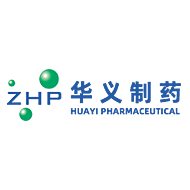b

Thank You!
Your requirement has been sent, we will contact you quickly!
Sent Failed!
Try again!
Duloxetine hydrochloride is the hydrochloride form of duloxetine, an antidepressant. It was successfully developed by Eli Lilly. Its pharmacological effect is the same as duloxetine. Duloxetine hydrochloride is a new inhibitor with dual effects of selective serotonin and norepinephrine reuptake. It has antidepressant effect and inhibitory effect on central pain.
The pharmacological characteristic of duloxetine hydrochloride is that it can inhibit the reuptake of serotonin and norepinephrine by the presynaptic membrane of neurons, and has a low inhibitory effect on the reuptake of dopamine.
It is used to treat depression and tension urinary incontinence. In 2004, Shionogi Pharmaceutical Co., Ltd. of Japan was authorized by Eli Lilly of the United States to further develop duloxetine, a compound developed by Shionogi Pharmaceutical Co., Ltd., which has a dual inhibitory effect on the uptake of 5-hydroxytryptamine (5-HT) and norepinephrine (NE). Existing research data have shown that the drug has a certain effect on tension urinary incontinence, depression and obesity. At present, the clinical trials of the drug in the treatment of tension urinary incontinence and antidepressant have been completed.
1. Liver and kidney dysfunction will significantly reduce the metabolism and clearance of duloxetine, which is not recommended for such patients.
2. Duloxetine interacts with alcohol and may cause liver injury, which is generally not recommended for the treatment of alcoholics.
3. In the clinical trial, compared with placebo, duloxetine increased systolic blood pressure by an average of 2 mmHg and diastolic blood pressure by an average of 0.5 mmHg. It is recommended to measure blood pressure regularly before and during treatment.

